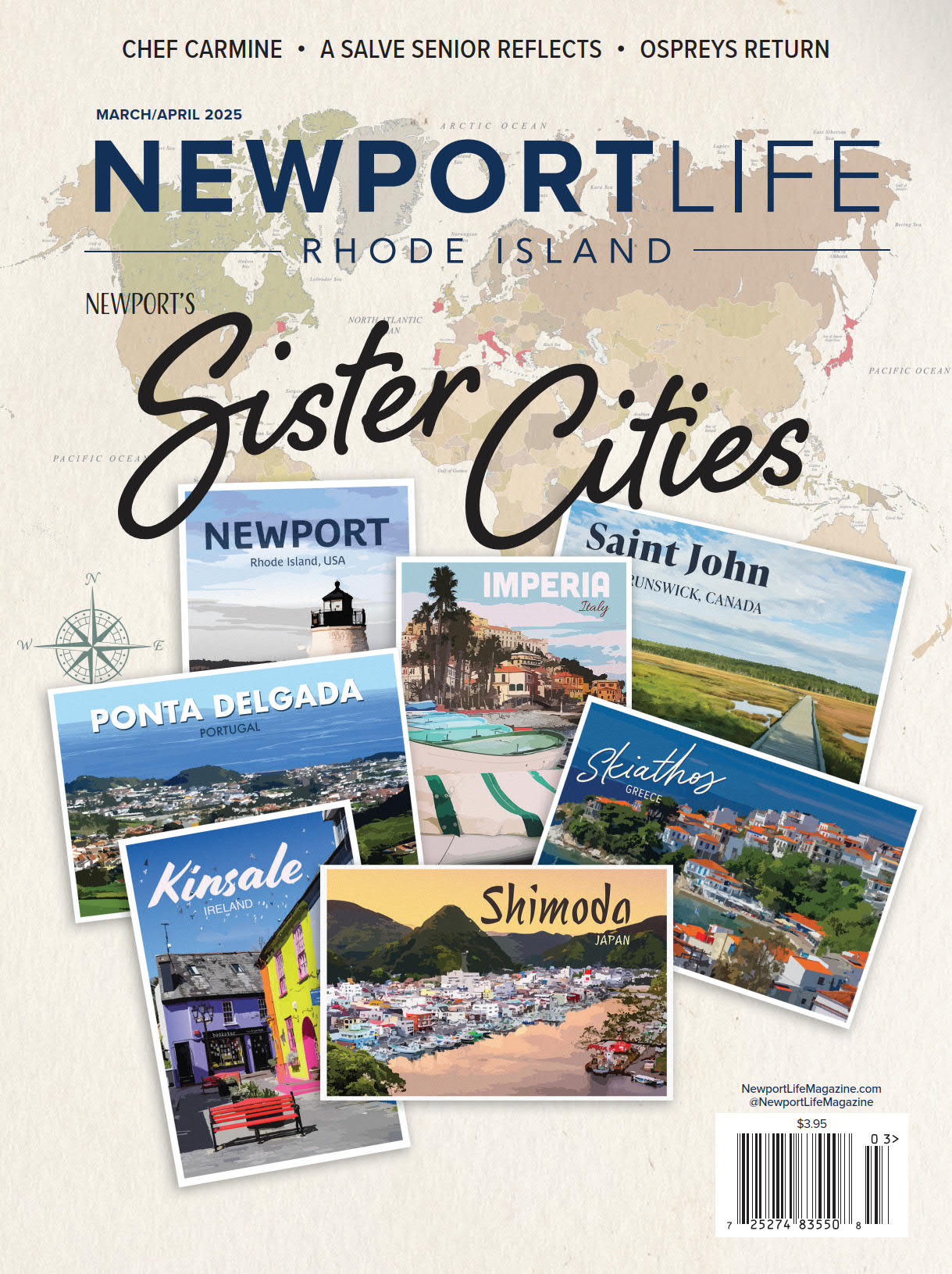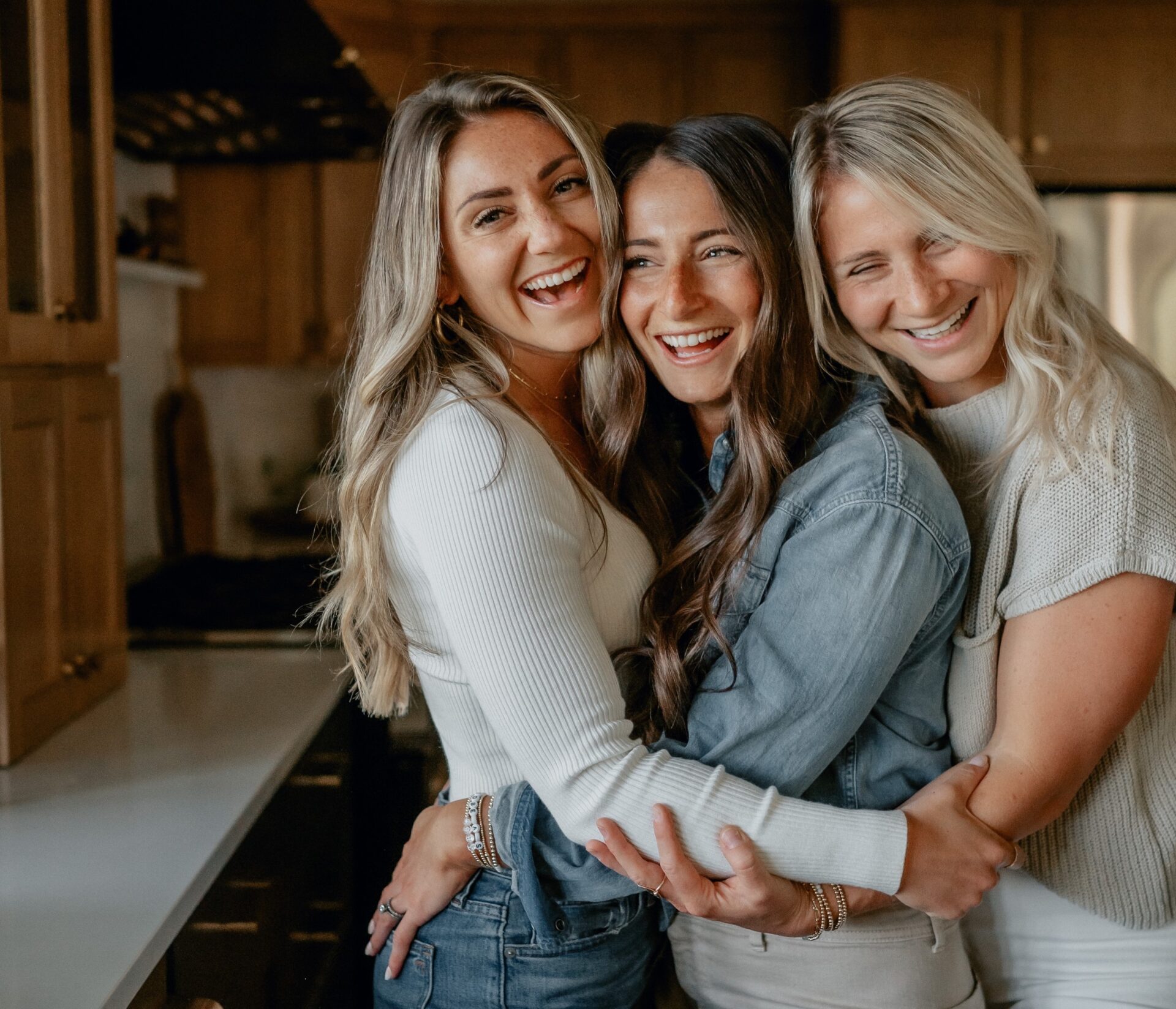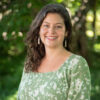Trailblazers to follow: The Beyar sisters of Balanced Beyars Health
By Helena Touhey
Featuring Alaina, Carly, and Julie Beyar
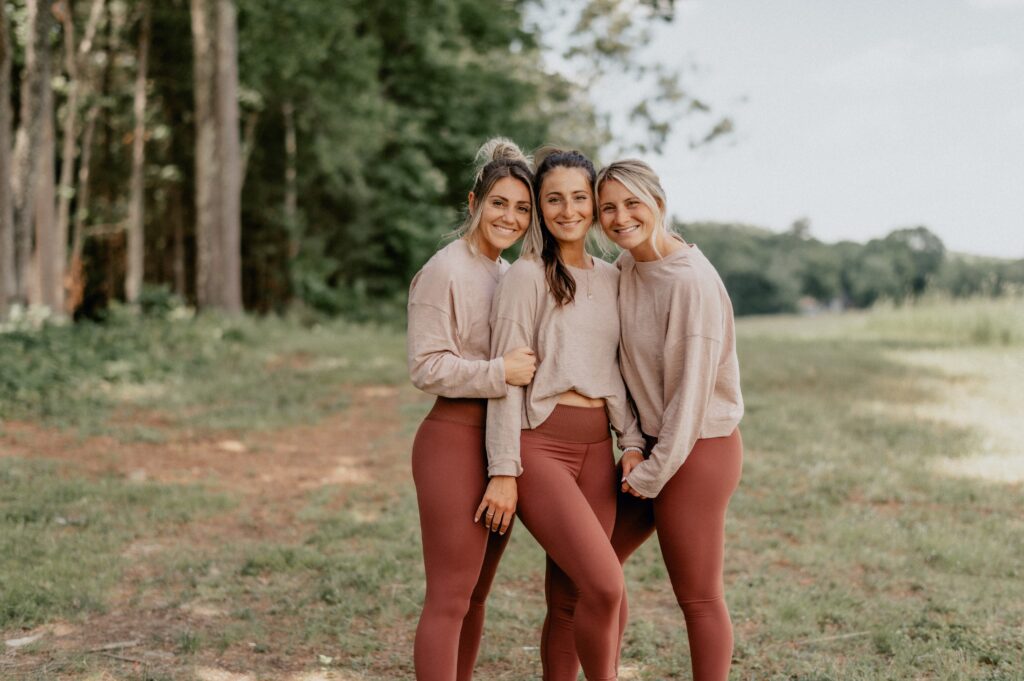
Alaina, Carly and Julie Beyar are extremely close.
“We’ve been doing everything together since we were little,” says Alaina, who is the oldest.
As young girls, they played soccer together, and now, as young women, the run a business together: Balanced Beyars Health — an endeavor that has won them fame as the “hormone hype girls.”
All three women are fertility awareness practitioners, menstrual wellness educators, and co-founders of The Power of Periodization, an online program they developed to help women track and better understand their natural cycles.
That they have developed a niche within the women’s wellness sector is an evolution of their professional work as health coaches — and their personal health journeys, which have centered around becoming more aware of and in-tune with their hormonal cycles.
All three played youth soccer and stuck with the sport through the collegiate level, which meant years of high intensity workouts followed up with food from McDonalds and other fast-food places.
This lifestyle coincided with taking hormonal birth control as teenagers. By their mid-twenties, the sisters found themselves questioning these choices and the impacts they were having on their bodies and took on “health as a hobby.” They experimented with recipes from Women’s Health and learned about yoga and other kinds of movement and ways o fworking out.
“We were just getting to know what health is,” says Alaina, who notes what started as a general interest led to delving deeper and becoming certified health coaches. “The three of us went into it together.”
For this story, they all joined in on a Zoom call, where their ease with one another was evident.
Knowing their own cycles
One of their first discoveries, which eventually led to the development of the Power of Periodization program, was of “cycle-syncing,” or learning to monitor the shifts in their bodies as they relate to the four phases of menstruation: menstrual, follicular, ovulatory and luteal.
Now, the Beyar sisters have become advocates for being increasingly in-tune with these phases — and how they affect a person on an individual level. This knowledge, along with eating well and exercising more, can reduce PMS pain and period-induced anxiety and depression — and help regulate menstrual cycles.
These realizations were personal – Alaina would often experience panic attacks and depression while on her period, and Carly, after stopping hormonal birth control, didn’t get her period for a year, and doctors told her that she might have a slew of health concerns. Once both sisters became more aware of — and in tune — with their natural cycles, these problems subsided.
Alaina no longer suffers severe anxiety and depression, and Carly’s period returned.
“We didn’t even realize we were on a medication,” Alaina said of starting hormonal birth control as teenagers and taking it for 10 years, without question. When she and Carly brought their various health concerns to doctors, “We felt really let down by the current medical system,” she says.
They soon realized the only way to get help was to seek it out themselves, which meant becoming more informed about their bodies.
“We went from general health coaches to this niche of women’s health,” Alaina says. Now, their goal is “helping women understand their bodies and feel good in their bodies.”
Becoming a team
In 2017 and 2018, the sisters earned certification from the Institute for Integrated Nutrition. All three are also certified fertility awareness educators.
“We wanted to do it right,” says Carly, who notes that they’ve grown a large Instagram following since 2018 (they currently have nearly 120,000 followers). Making sure the information they share is based on research and professional knowledge is as important as making it relatable.
“We started with telling everyone about our personal experiences on Instagram,” Carly says. “We didn’t even have that many followers at the time,” adds Julie.
“We’re very much self-made and driven by our own experience,” says Alaina.
They started to get clients with hormonal issues. The sisters realized that, rather than coaching one-on-one, they could team up and coach together.
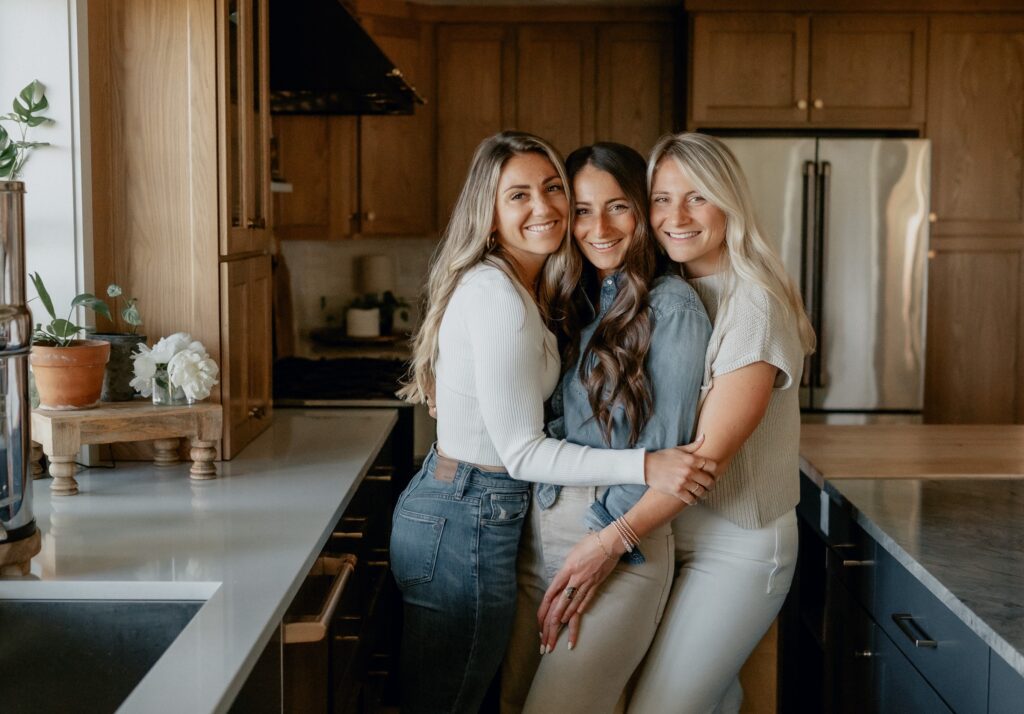
Creating courses together
Carly took a course on how to put together educational courses, which led to the creation of The Power of Periodization, which they call POP. The first iteration of this program was taught through live coaching, with 200 women participating at a time.
The sisters decided they would be able to reach more people, and at a more-affordable rate, if they pre-recorded the lessons and created a self-paced program people can begin at any time. Now, there are 21 lessons that range from30-60 minutes each, at a cost of $347 — with the option to pay in installments. They estimate they’ve been able to help more than 900 women so far.
“We teach women to have a cycle strategy,” says Alaina, who notes this is “kind of like the seasons changing.” (“We love saying that,” chimes in Julie, with a smile.)
“It’s about knowing what’s coming next and being able to support yourself,” adds Alaina, “it’s a partnership with your own body.”
Carly nods and offers: “It’s about self-love and compassion for yourself because you understand where you’re at.”
Freeing a difficult topic
On their Instagram account, and in general, the sisters aim to keep their approach to informing on periods conversational. They often weave in humor (“We’re always embarrassing ourselves,” says Alaina). They recognize that talking about menstruation is difficult for many and is routinely stigmatized, so they seek to make the topic accessible and the content relatable in a way that informs and empowers.
All three moved to Rhode Island during the past few years, and they quickly called The Ocean State home. Julie, 29, lives in Newport with her boyfriend. Carly, 31, recently moved to Bristol from Newport with her husband; and Alaina, 32, has a summer home in Middletown, and she divides her time between Aquidneck Island and Connecticut with her husband and young sons. All three were born in Staten Island, New York, and were raised there and on Long Island.
What’s next? All three point out that their work has evolved in pace with the evolutions of their personal lives. With one sister about to give birth to a daughter — and another raising two young sons — developing a program on fertility may be next. Other areas of interest are developing programming for young girls, and also delving into menopause, which people have inquired about.
“Normal life these days is go-go-go,” says Alaina, “which is a recipe for disaster. Our bodies thrive in a state of safety and stability.”
